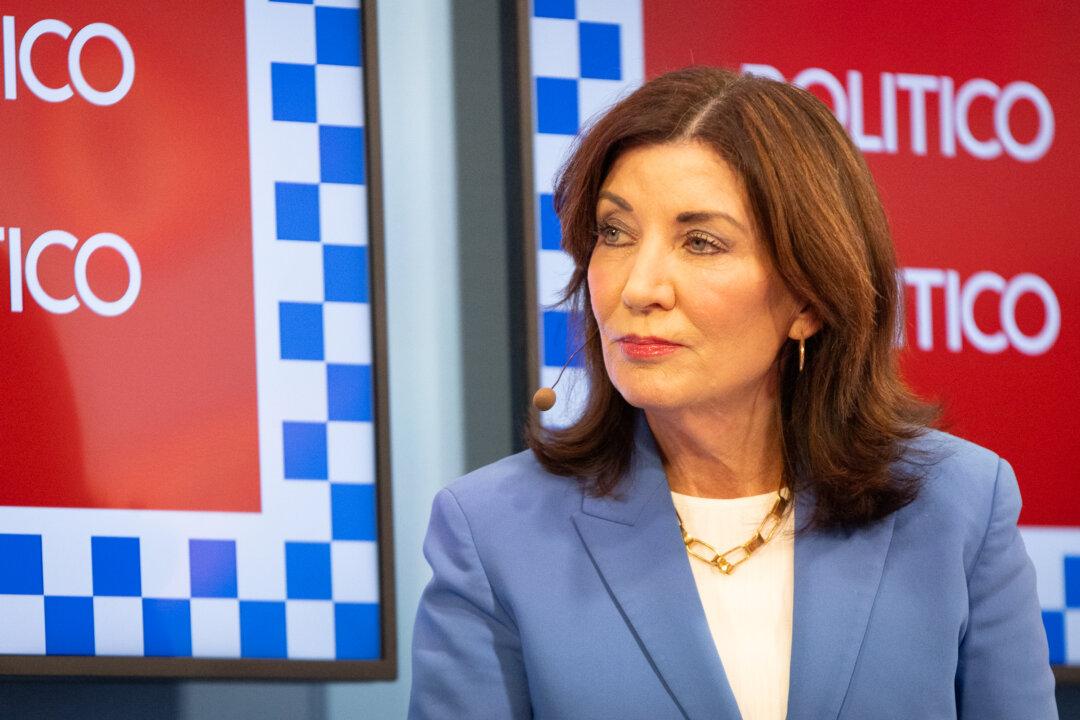NEW YORK CITY—After a public hearing, the board of the Metropolitan Transportation Authority (MTA) has voted 12–1 to approve New York Gov. Kathy Hochul’s decision last week to implement congestion pricing, with $9 tolls instead of the $15 originally envisioned, beginning in January.
Starting on Jan. 5, commuters who drive into Manhattan below 60th Street will pay a $9 toll. This rate will be in effect through 2027, after which the fare will increase to $12 through the end of 2030.





